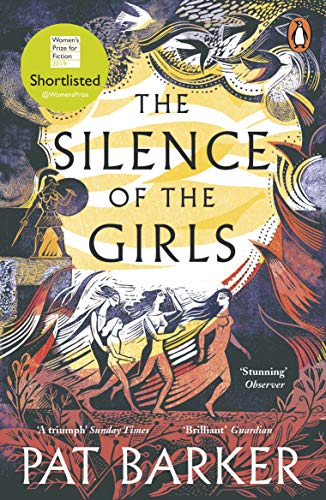
If “Silence becomes a woman,” I’m glad Pat Barker decided to speak!
Queen of Lyrnessus, Briseis is the spoil of a war neither she not her kin wanted or encouraged. Instead, she is caught in the most epic of battles, the one waged against Troy by angry Greeks enraged by the kidnapping of the beautiful Helen, wife of Menelaus. Agamemnon, Menelaus's brother, is commander in chief of the Greek army, but Achilles is the real leader, the unbeatable warrior who inspires soldiers from both sides, Greeks and Trojans alike. And Briseis is simply another prize awarded to him after he has slain sixty men to conquer her city, including her father and four brother's.
Stripped of her rank, Briseis becomes Achilles's slave and joins the other captive women inside the Greek compound, serving and obeying her master in and out of bed. It is a life of routine, rape, pain, frustration and bitterness that she mutely shares with every other broken woman in the camp, while observing the men surrounding her. One stands out among the rest, Patroclus, and not because of his special relationship with Achilles. He alone shows an interest for her as a person, so the story becomes one of men, too, of their fighting, their bravery and their deaths. Unaware that destiny has reserved her a very special place, she follows the unfolding of the battle and of the carnage until the fatal break between Achilles and Agamemnon will change the course of history forever.
I have known and loved the story of the fall of Troy since I was a toddler, but after reading The Silence Of The Girls by Pat Barker, I realize I only knew one side of it, the men's side. Now finally, we can all hear the women's voices telling of the horror and brutality they're forced to endure. Using the first person point of view and a compelling, detached yet intimately personal narration, the author gives passion and power to those women whom history has done its best to forget. I'm just grateful to Mrs. Barker for having resurrected them from their unjust oblivion in order to bear witness to man's inhumanity to man.
But this book isn't only about women.
Mrs. Barker's impressive achievement in my opinion is her convincing and original depiction of those men everyone knows in one way or another. In stark vividness, they come alive like never before, Agamemnon as a lazy brute, Achilles as a spoiled child and Patroclus, Achilles's soul-mate and confidant, as a peacemaker. So they aren't heroes, rather frail human beings trying to cope with a bad situation that threatens to become worst at a moment's notice.
Truly moving and poignant, it deserves all the 5 out of 5 stars that I've rated it, if not more, and though I'm delighted to have read this book, I'm real sorry it has ended!

